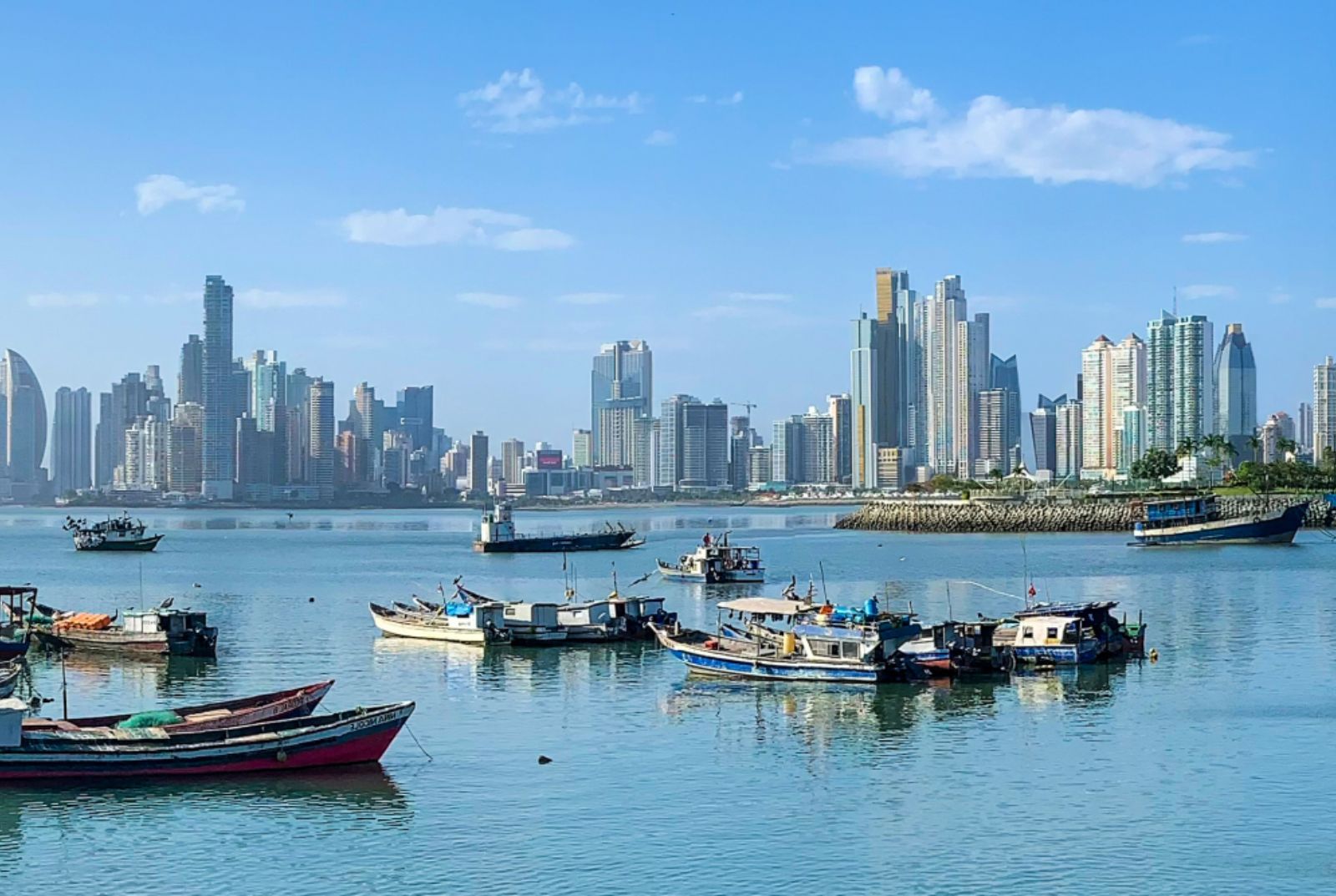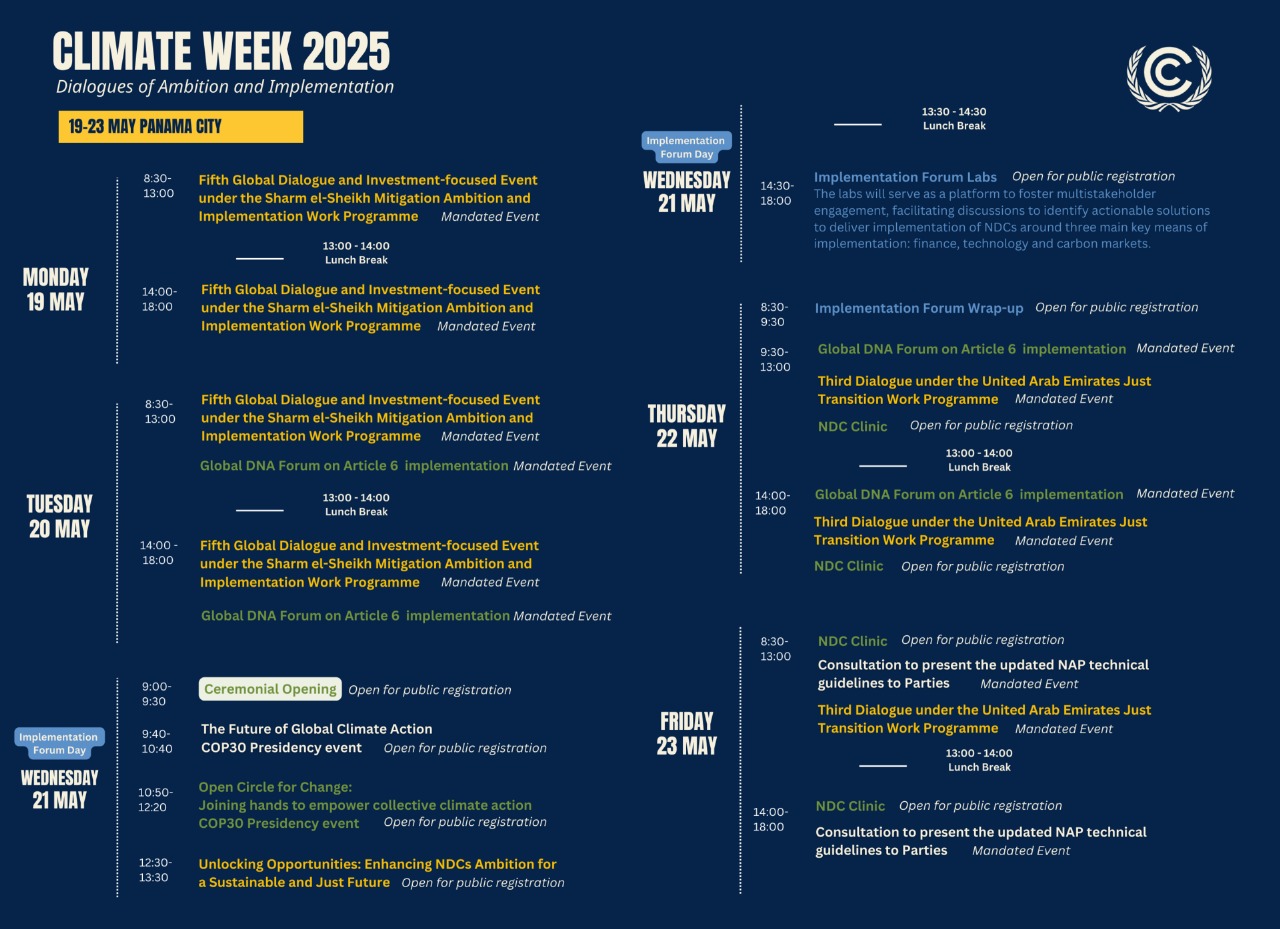In Panama, Climate Week assesses country progress, debates forests, and just transition
COP30 Presidency invites participation in the Open Circle Conference in Brasil. The event aims to gather innovative solutions for urgent, inclusive, and coordinated climate action

The first Climate Week under the United Nations Framework Convention on Climate Change (UNFCCC) kicks off today (Monday, May 19) in Panama City. This year marks a new format for Climate Weeks: it is no longer regionally focused and will now host mandated negotiation events. Two meetings will take place in cities of the Southern Hemisphere.
The Panama Climate Week will advance implementation of the Paris Agreement, as part of the negotiation processes leading to COP30, which will be held in Belém do Pará in November.
From May 19-23, UNFCCC representatives from member countries and non-state actors will convene in Panama for political dialogues, capacity-building sessions, and exchanges of innovative solutions. One key objective is to facilitate discussions on implementing NDCs — as well as debates on issues such as just transition, mitigation, and technology. These topics will be further discussed at the Climate Change Conference in Bonn, Germany, from June 16 to 26 during the negotiations preceding the COP.
During Climate Week, the Implementation Forum highlights the challenges of implementing climate action plans. Government representatives, policymakers, climate experts, and stakeholders will discuss strategies for developing finance plans for their Nationally Determined Contributions (NDCs) — agreements made by Paris Agreement signatories to reduce greenhouse gas emissions. This concept was first introduced 10 years ago at the COP. Discussion labs will cover financing, Article 6, and the role of technologies in NDCs.

By September, before the COP in Belém, signatory countries of the Paris Agreement must present their new NDCs. These national contributions enable countries to achieve tangible results regarding the reduction of greenhouse gas emissions and adaptation to the impacts of climate change.
The Brazilian Presidency of COP30 is attending Climate Week and will invite governments, individuals, and institutions to the COP Open Circle. This initiative, announced by COP30 President Ambassador André Corrêa do Lago, seeks to expand participation and dialogue in the preparatory process for the Climate Conference.
"It will be our space for listening and collective articulation, intended to gather people, movements, organizations, communities, and civil society initiatives interested in contributing to the COP30 process," explained Corrêa do Lago.
The COP Open Circle will increase social participation in the preparations for COP30, identify ongoing initiatives that inspire effective climate action, and reinforce the call for the Global Mutirão (global collective effort). This is a Brazilian COP presidency initiative that recognizes the value of local knowledge, community-based solutions, and existing local actions.
“Climate Week will be key for us to fine-tune negotiations on issues such as just transition and mitigation before Bonn. In Panama, we need to accelerate the implementation of the Paris Agreement - that's why the COP30 Presidency has called for a Global Mutirão against Climate Change involving national and sub-national governments, the private sector, the financial sector, civil society and various other actors. COP30 is in a hurry, because we are living through a climate emergency that will spare no one,” said COP30 CEO Ana Toni.
The Climate Week program also includes implementation forums, debates on NDCs, adaptation plans and just transition.
A second Climate Week is scheduled to take place in Africa before COP30, as part of this new cycle of meetings promoted by the UNFCCC.

